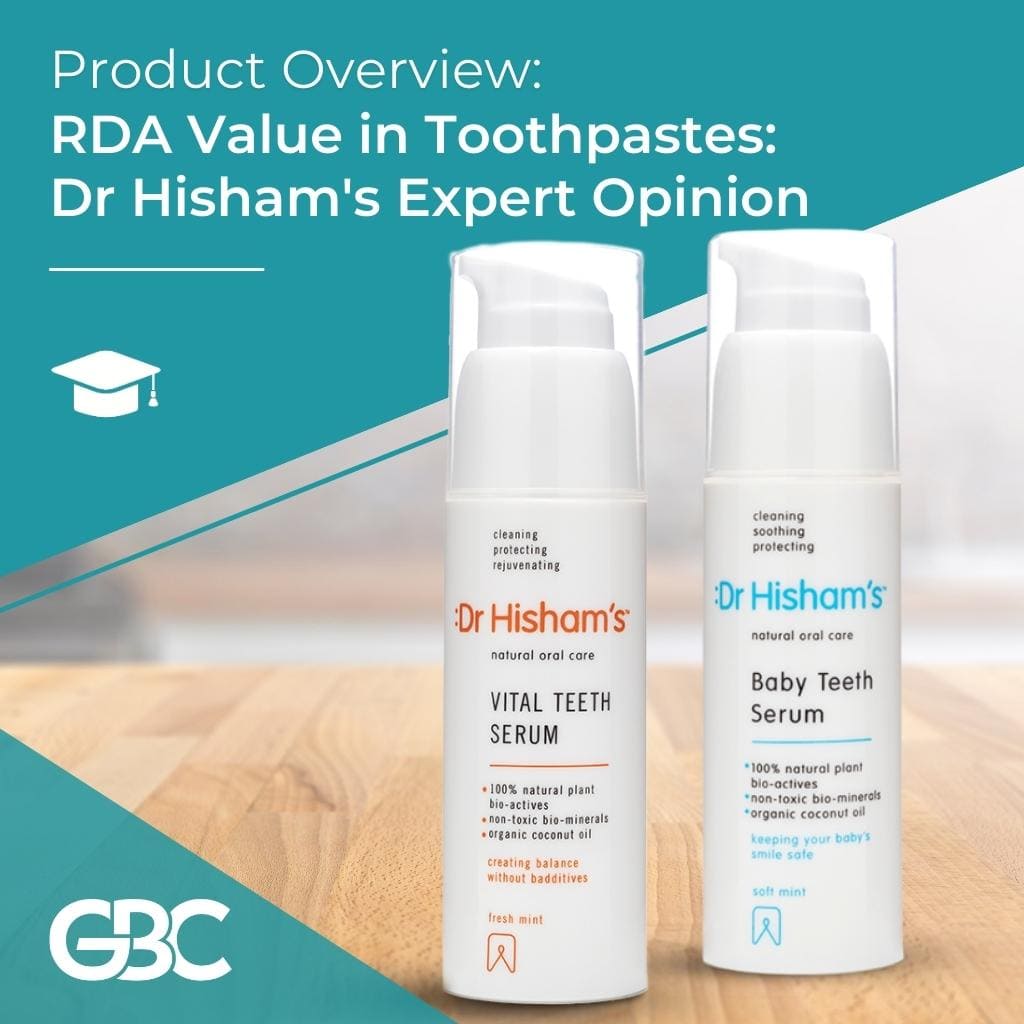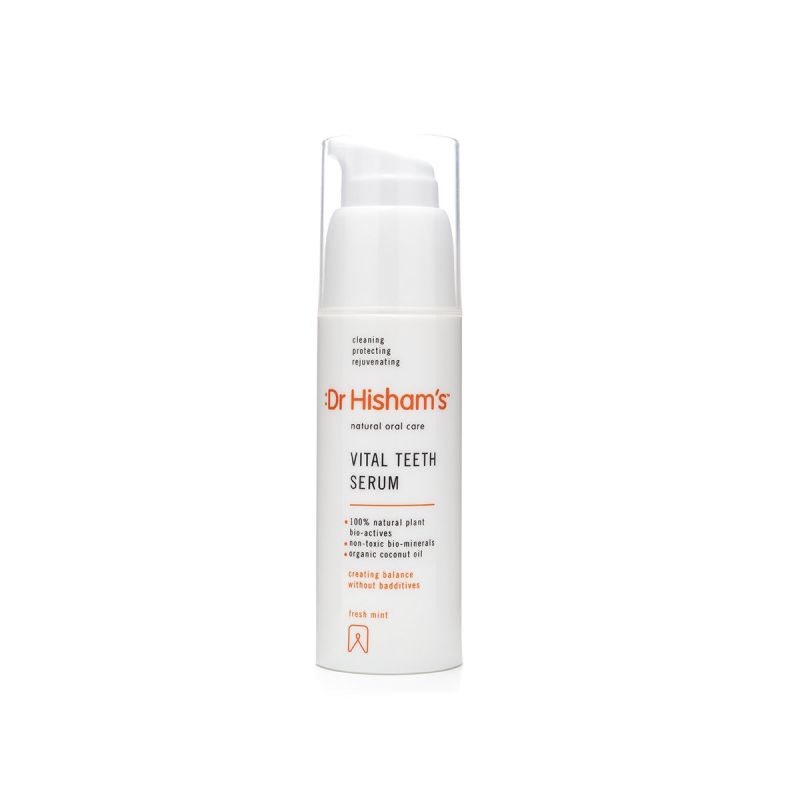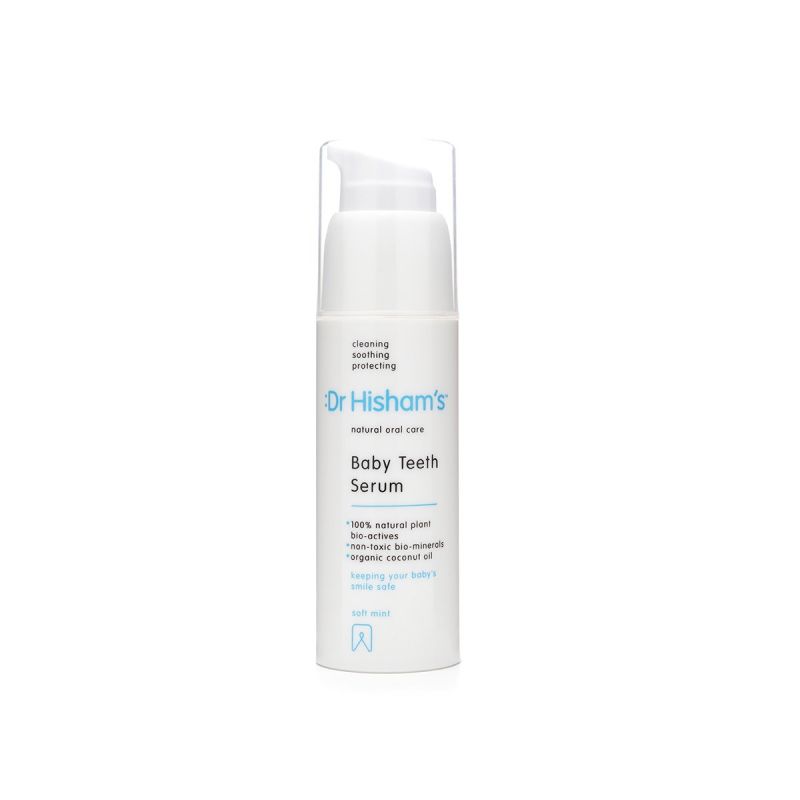Your main summary points
- RDA stands for "Relative Dentin Abrasion" or "Radioactive Dentin Abrasion".
- It can be used to measure the grittiness of toothpastes.
- Conventional toothpastes contain abrasives that wear down teeth, gums and gumline.
- Dr Hisham's serums are gentle, dissolve easily, and contain no harsh or soapy substances.
- Contrary to popular belief, sodium bicarbonate has the lowest level of abrasiveness compared to other tooth brushing agents.
- Dr Hisham's Holistic Oral Care System is based on the human body, promoting natural equilibrium, and food-grade supplementation
Dr Hisham's, a holistic dental care company, has transformed oral care with their unique Holistic Oral Care System. Unlike traditional dental products, this system goes beyond, forming a whole new category. Driven by a deep understanding of the human body, promoting natural equilibrium, and food-grade supplementation, it has remained unparallel for over two decades. Dr Hisham's continues to lead the industry, transforming smiles and improving lives with their innovative approach to holistic oral care.
We discussed with Dr Hisham the dangers of abrasives, why they are a common ingredient in conventional toothpastes and what makes his Vital Teeth Serums stand out.
What is the RDA value of Dr Hisham's Teeth Serums?
RDA stands for “Radioactive Dentin Abrasion” or “Relative Dentin Abrasion”. It is a system to measure the grittiness or abrasiveness of toothpaste. The ideal RDA value for brushing teeth is less than 45, anything more and you could be doing more harm than good. Be sure to check out this list of popular toothpastes and their RDA index, here: Toothpaste Abrasiveness PDF.[1]
Extra Insights
Toothpastes have different ingredients like abrasives, humectants, detergents, and additives. The abrasiveness of a toothpaste is affected by factors such as how hard it is, how much of certain substances it contains, and the size of particles like silica, calcium carbonate, dicalcium phosphate, and alumina. [2]
How do you test for abrasion?
Scientists brush special dentin samples that have been marked with a radioactive substance using the toothpaste they want to study. After brushing, they check how much radiation is left on the dentin samples to see how much radioactive material has been removed.
A study conducted in 2023 found that toothpastes with more silica particles tend to be more abrasive. This was strongly linked to the wearing down of a material called polymethyl methacrylate (PMMA), which is commonly used in crowns, bridges and dentures. [3]
Why Dr Hisham's serums are non-abrasive
Dr Hisham has a different approach when it comes to using rough and soapy substances every day in the mouth. Here are three reasons why:
1. Abrasives are not recommended for daily use [4]
Dr Hisham believes that the soft tissues in our mouth should not be exposed to harsh abrasives on a daily basis. These gentle tissues need a more caring and gentle approach.
2. Tooth-friendly ingredients
Dr Hisham's products, like the Vital Teeth Serum, are made with ingredients that dissolve easily. This helps protect the teeth from damage caused by abrasives and keeps them healthy.
3. Gentle and caring approach
Dr Hisham's oral care system avoids using any harsh or soapy substances. Instead, it focuses on providing a gentle and caring approach to taking care of your mouth, promoting healing and nurturing effects rather than causing harm. If you were to subject Dr Hisham’s Vital Tooth Serum to an RDA test, these serums would likely yield a negative value or, at most, a minimal value comparable to water.
Moving beyond acidity and abrasion
Dr Hisham's approach is a sharp contrast to conventional practices that involve acidic mouthwashes, [4] [5] irritating and pro-inflammatory detergent toothpastes, and abrasive substances on manual or electric toothbrushes. [6] Such practices can cause damage to gums, bone, dentin, and even enamel especially when acidified prior to brushing.
Dr Hisham's recommended daily approach is gentle and nourishing. It begins with the use of the Alkaline Mouth Rinse to alkalise and stimulate saliva flow, followed by brushing the gums and teeth with the Biofunctional Gum & Toothbrush coated with the serum. By following this regimen, the focus shifts from causing harm to promoting healing, nurturing, and remineralising effects.
The RDA of Organic Dental Detox - Tooth Whitening Powder
Dr Hisham's Organic Dental Detox - Tooth Whitening Powder can be compared to the safest known 'RDA abrasiveness' rating of 7. [7] It contains a significant amount of sodium bicarbonate, alongside other biomineral salts. It is enriched with finely milled birchwood xylitol and erythritol, making up over 50% of its composition.
How to use Organic Dental Detox - Tooth Whitening Powder
For optimal use, Dr Hisham recommends utilising the Detox Powder within their unique system methodology. Rinse the mouth vigorously with Dr Hisham’s Alkaline Mouth Rinse for 1 minute or longer, then use the Tooth Whitening Powder instead of teeth serum, twice a day, to brush your gums and teeth. This innovative method guarantees the highest effectiveness and safety.
Sodium Bicarbonate: separating facts and fiction
Sodium bicarbonate is often misunderstood in the context of oral care. It’s really useful for overall oral health and can be found in "Natural Toothpaste" products. Contrary to popular belief, bicarbonate of soda actually has the lowest level of abrasiveness among various tooth brushing agents, even when used in its dry form! It readily dissolves in saliva, minimising any potential abrasive effects. [8]
So why do people assume that sodium bicarbonate is excessively abrasive?
One reason why might be the grittiness of sodium bicarbonate compared to toothpaste when touched. Baking soda tends to feel gritty because it is dry, while toothpaste contains hydrated silica which has a smoother texture (figure 1 and 2).
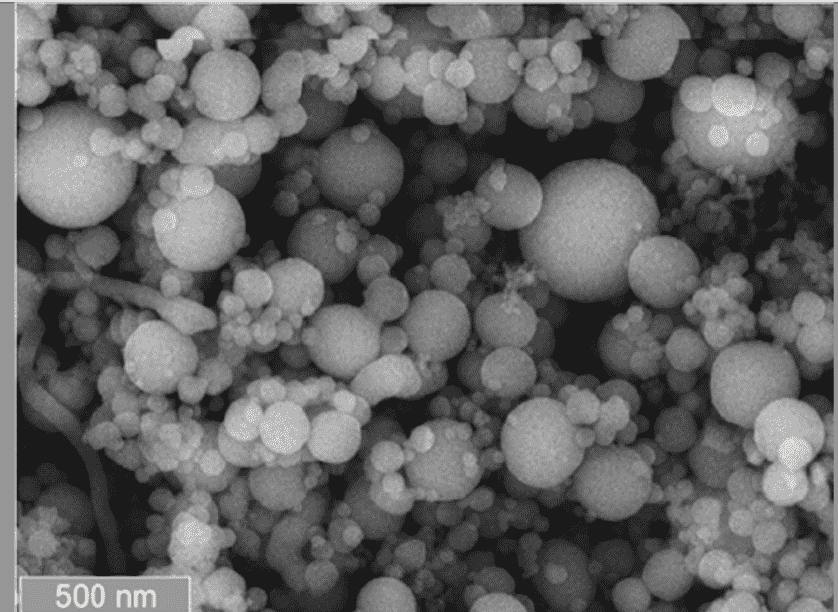
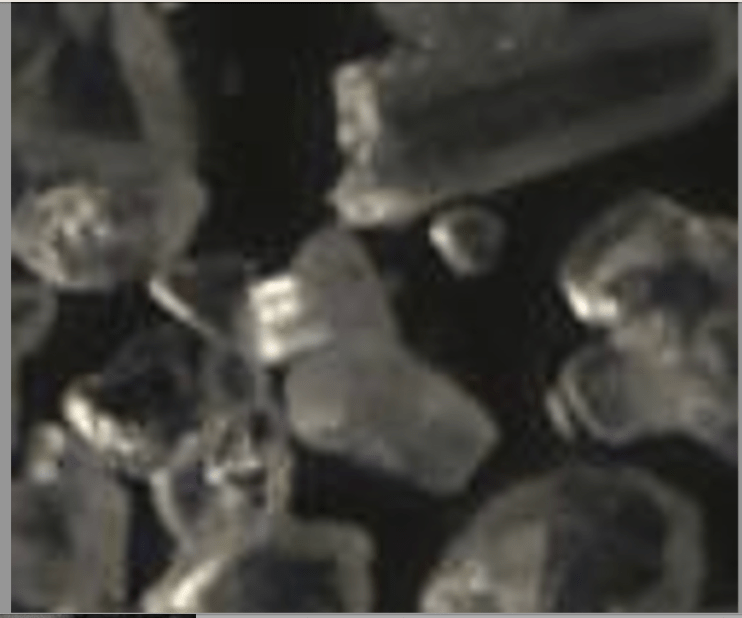
Figure 1: Silica particles (left) have a round and smooth shape. The particles are extremely hard and non-soluble. Silica is commonly found as abrasives in toothpastes. Baking soda particles (right) are up to 15 times larger than silica particles and readily dissolve in water.
When two hard objects rub against each other, it's similar to a diamond on glass. The harder object experiences very little damage, whereas the softer object gets noticeably scratched or damaged. The Mohs Hardness scale is a way to measure how hard and resistant materials are to scratching.
Mohs Hardness ratings:
- Human enamel (The outer covering of teeth) = 5
- Human dentin (The layer under the enamel) = 3
- Sodium Bicarbonate = 2.5
- Hydrated silica in toothpaste = 5-7
From these figures we can see that conventional toothpaste containing hydrated silica can cause damage to human enamel and dentin, whereas sodium bicarbonate is a softer and gentler alternative for protecting human enamel and dentin.
In conclusion, Dr Hisham's innovative approach to holistic oral care brings a significant change to the industry. Their unique perspective and commitment to overall oral health have introduced innovative solutions that challenge traditional practices. By highlighting the importance of gentle and nurturing methods and dispelling misconceptions about abrasiveness, Dr Hisham's enables individuals to make informed choices about their oral care. They prioritise long-term oral wellbeing and provide accurate information, setting a new standard for holistic oral care. This empowers individuals to navigate the complex world of oral health with confidence and knowledge.
References:
[1] Toothpaste abrasiveness PDF



